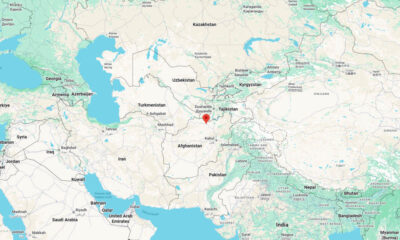Reviews
New Zealand Moves Closer Toward Regulating Online Casinos By 2026

The New Zealand government has made significant strides toward regulating online casinos, a move that will address the current gaps in consumer protections. This move will create a framework for the growing gambling industry.
Proposed new regulations aim to establish a licensing system for online casinos operating in New Zealand, which are set to be implemented by 2026. These regulations will require operators to obtain licenses, adhere to consumer protection standards, and pay taxes on their revenue. The initiative is spearheaded by Minister of Internal Affairs, Brooke van Velden, and shows the government’s commitment to protecting New Zealanders from unregulated online gambling.
Accessing unregulated sites poses risks to gamblers as they are often unlicensed, with no stringent data protection policies in place. According to Techopedia, players should aim to access regulated sites that offer a wide variety of games, bonuses and customer service. Although these sites are not hosted in New Zealand, if they are licenced by a reputable gambling authority, they are generally safe for players to use.
The outdated Gambling Act of 2003 governs gambling in New Zealand but excludes online casinos. This gap in regulation has led to New Zealanders accessing foreign casino sites, which lack local oversight. Players on these sights encounter issues related to data privacy, transparency, and responsible gambling practices.
By creating a formal licensing system the government will mitigate these risks, bringing New Zealand in line with other countries, like the UK, that have successfully regulated online gambling.
The New Zealand National Gambling Study: Wave 4 found that by 2015, 75% of New Zealand’s adult population was participating in some form of gambling, which means unregulated problem gambling is a growing concern. The aim of the proposed regulation is to ensure operators implement responsible gambling measures, like betting limits, self-exclusion programs, and educational tools so players can learn to manage their gambling habits.
The regulation of online casinos will also bring economic benefits to the country through tax revenue. Estimates vary, but some projections suggest that New Zealand could earn millions of dollars annually from taxes and licensing fees. This revenue could be used to fund public services and initiatives.
By formalising the industry, the government will ensure that online operators contribute their fair share, supporting the economy while offering a safe online gaming service.
The implementation of these regulations will come with challenges. It will be difficult to enforce compliance from foreign operators who offer services in New Zealand, as international jurisdictions complicate regulatory oversight. The government will have to rely on partnerships with other regulated markets, similar to how the UK monitors foreign operators. Industry stakeholders have raised concerns about restrictions on advertising and gameplay, which may impact the attractiveness of platforms.
However, the Ministry of Internal Affairs is optimistic that the benefits will outweigh these challenges.
The move toward regulation will establish clear guidelines for the online casino industry. Through this, the government aims to create a more equitable market where players will enjoy safe gaming experiences. The regulations propose a balanced approach, highlighting consumer protection and economic benefits, without encouraging an increase in gambling.
Should these regulations be successful in 2026, the framework may serve as a model for other nations currently navigating the complex world of online gambling.

-

 US News5 days ago
US News5 days agoJetBlue flight diverts to Tampa after altitude drop injures at least 15
-

 World1 week ago
World1 week agoU.S. Navy helicopter and fighter jet crash in South China Sea; all crew rescued
-

 Legal1 week ago
Legal1 week agoMultiple injured in shooting at Lincoln University in Pennsylvania
-

 World2 days ago
World2 days agoStrong 6.3 earthquake strikes northern Afghanistan; felt across Pakistan
-

 World3 days ago
World3 days ago10 people stabbed on train in Huntingdon, England
-

 World2 days ago
World2 days agoProtesters storm government building in Mexico after killing of local mayor
-

 US News5 days ago
US News5 days agoTrump says U.S. will resume nuclear weapons testing ‘on an equal basis’
-

 US News7 days ago
US News7 days agoDamage reported in Kilgore, Texas following tornado warning




